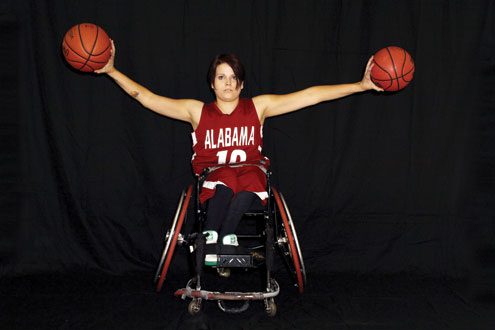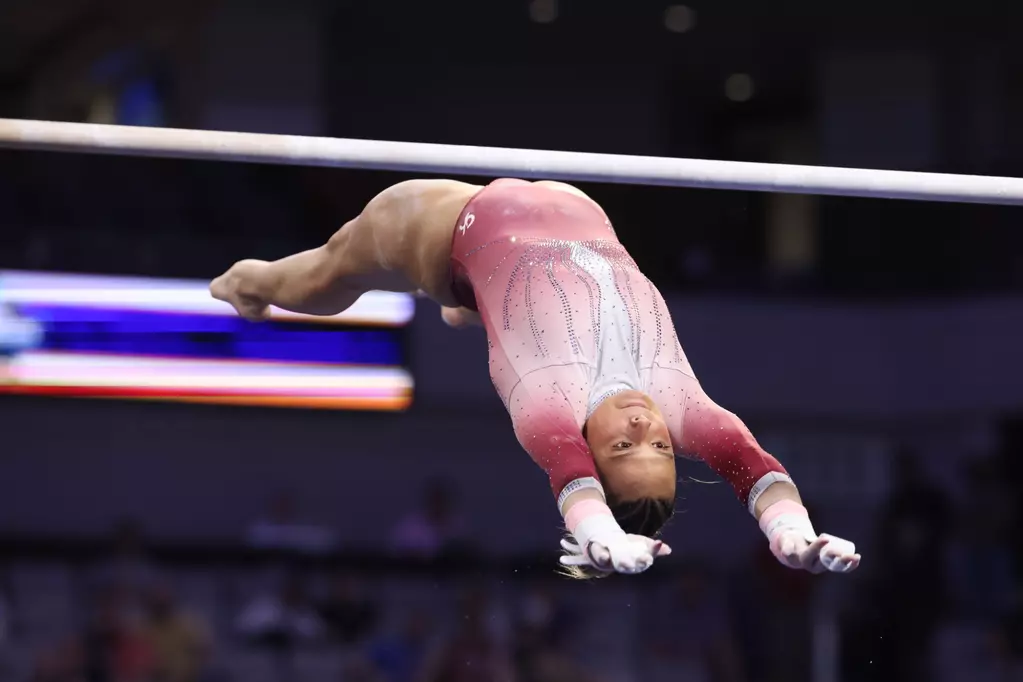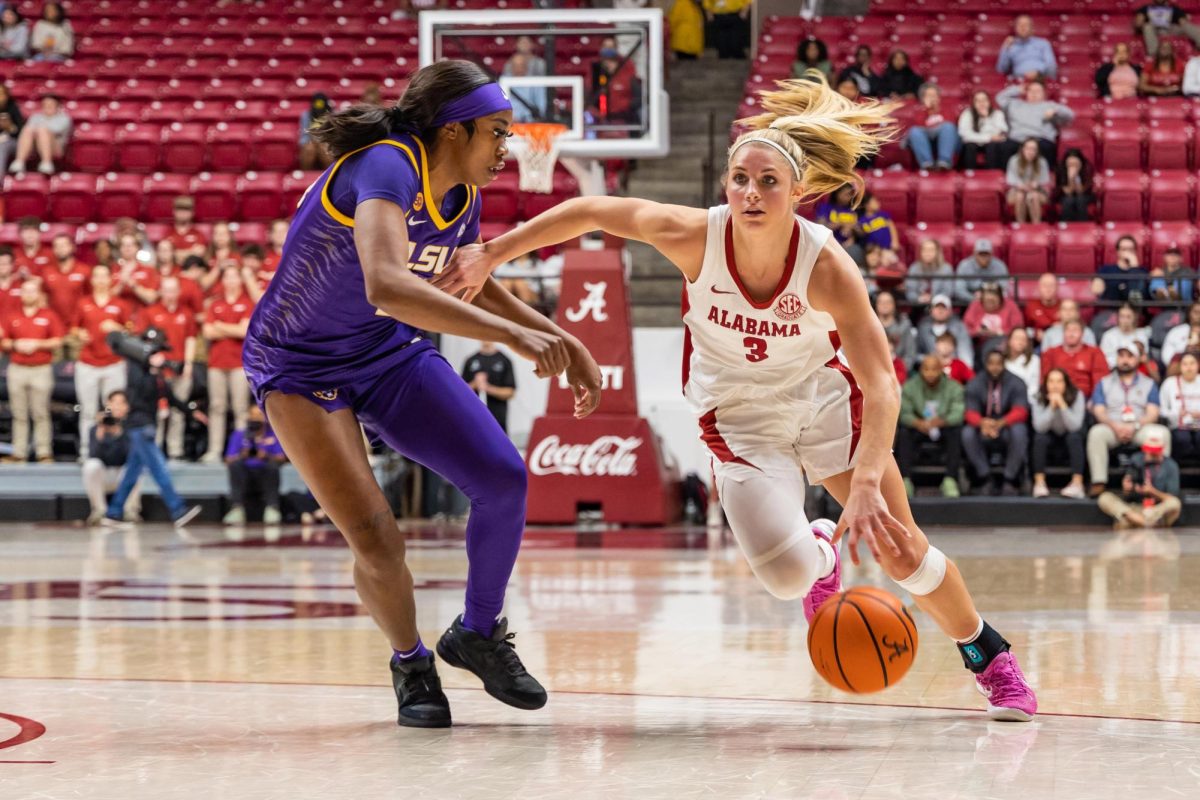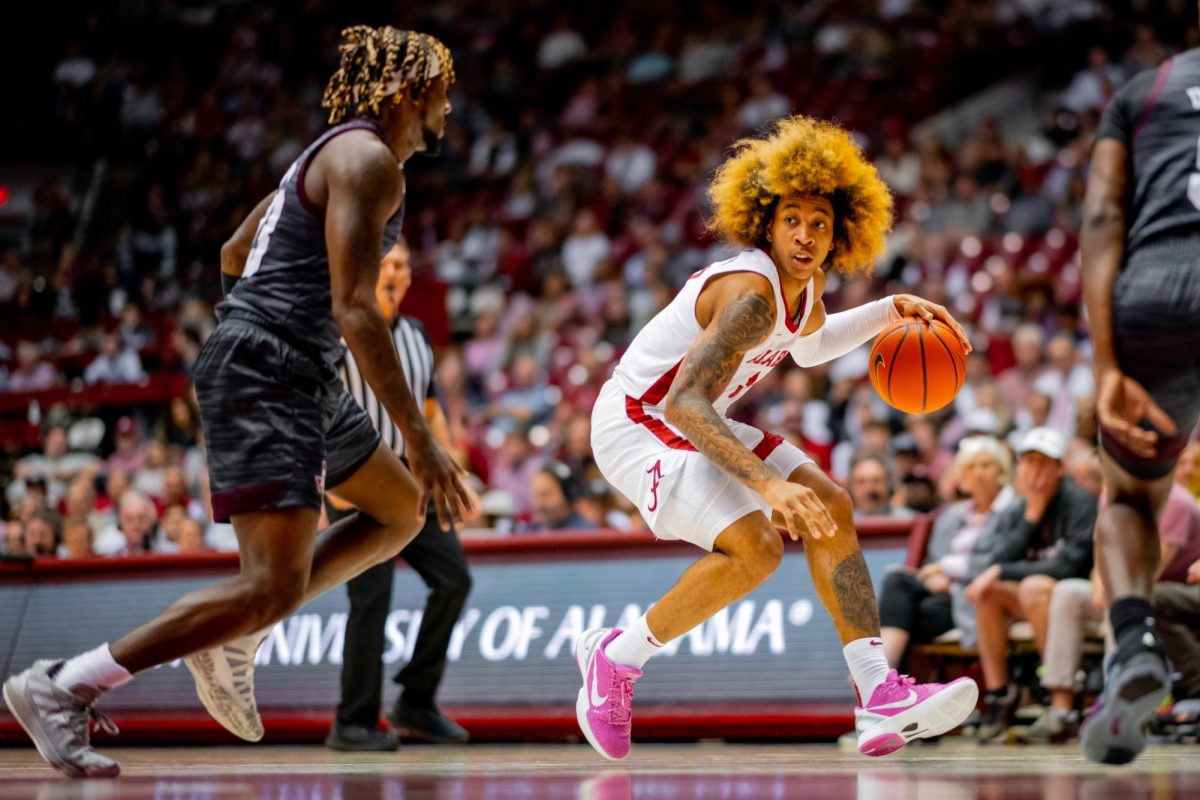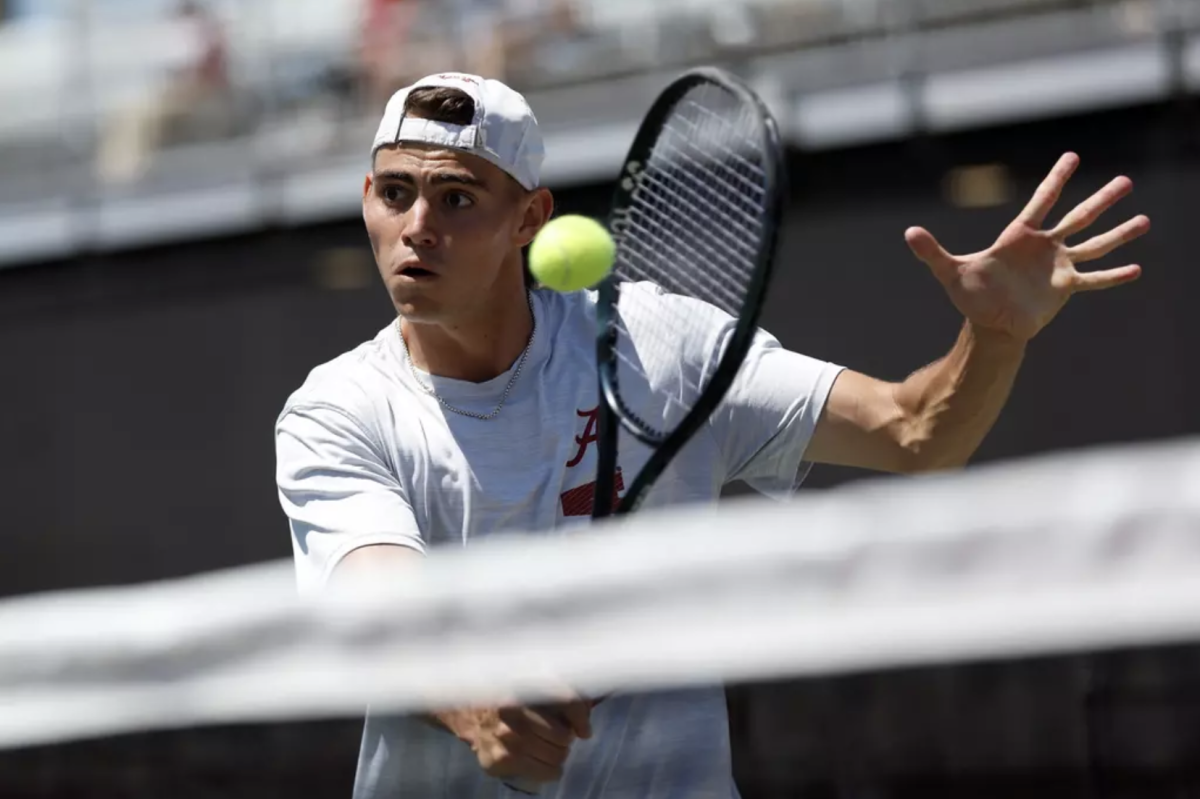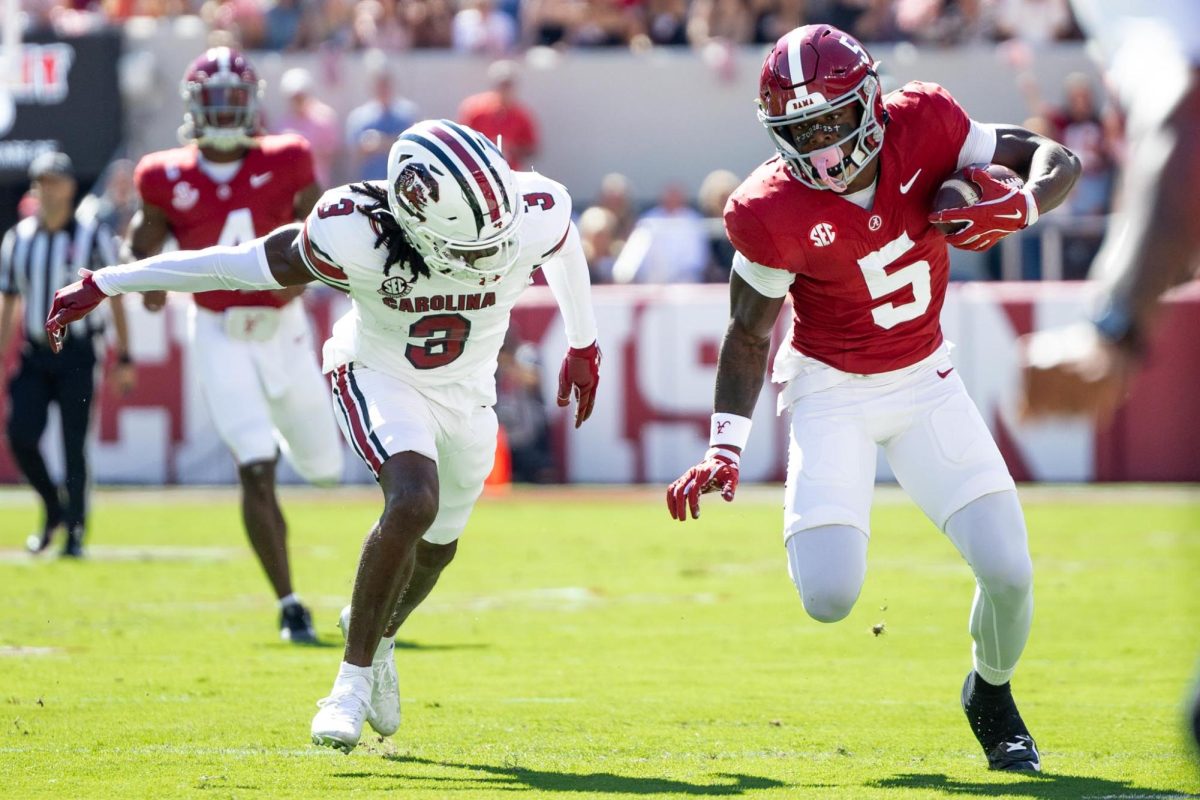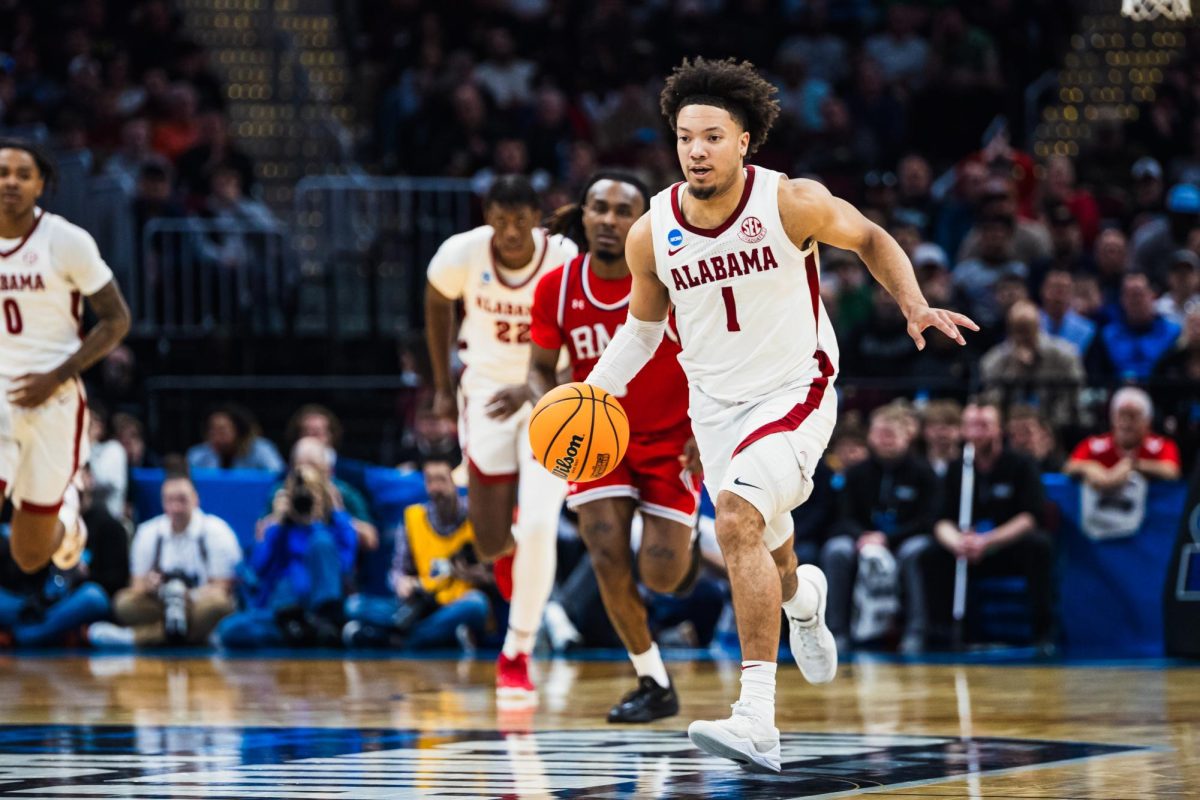 Winning a national championship in any sport takes not only exceptional execution of plays, but also a well thought-out game plan. The University of Alabama Women’s wheelchair basketball team has won the last three national titles with those two qualities and is looking to add its fourth in a row this year.
Winning a national championship in any sport takes not only exceptional execution of plays, but also a well thought-out game plan. The University of Alabama Women’s wheelchair basketball team has won the last three national titles with those two qualities and is looking to add its fourth in a row this year.
Though wheelchair basketball does not differ much from the traditional game, one thing that does differ is the use of picks.
“Our picks are really different,” guard Elissa Robinson said. “We can completely stop someone, whereas an able-bodied person can only slow them down.”
In the wheelchair game, it is possible to lock-up your opposition with a well-executed pick. This allows the team to take opponents out of the game at times.
“We can use back-picks,” Robinson said. “We use those to keep somebody out in the back court. We can keep them from completely moving at all.”
This technique is difficult to escape. However, if players find themselves in it, there are ways to free up the picks.
“You have to go into your one-on-one shadow technique, which we practice a lot,” Robinson said. “We just use space and keep pushing.”
Much of the Crimson Tide’s scoring comes from picks. Perhaps the most lethal play in the Tide’s playbook is one they call “four.”
The play begins with one of Alabama’s bigs, Karoline Lingyte, taking the ball at the three-point line. If defenders come to guard the accurate three-point shooter, guard Cindy Ouellet comes to set a pick. This frees up Lingyte to drive to the hoop; meanwhile, Ouellet comes off of her pick and creates a two-on-one advantage for the Tide driving toward the hoop.
“We score on it a lot because Karolina (Lingyte) hits a lot of threes,” head coach Brent Hardin said. “As soon as she gets the ball out there, most teams will jump her right away. So she keeps that ball moving, Cindy (Oullet) lays that pick and we roll.”
If the opposing team does not fall for the pick-and-roll play, the Tide sets up a double-screen on the other side of the court.
“If they help, they usually help to defend the roll,” Hardin said. “As soon as they help, we put a good shooter on the other side of the court, and she makes it.”
Alabama knows that it cannot rely solely on picks and screens in order to achieve its four-peat. Despite being a bigger team, the Tide also works on it’s outside game in order to remain balanced on offense.
“When we play teams that have the same amount of bigs that we do, posting up is not going to work out too well,” Robinson said. “We really need to work on hitting the outside shots. We don’t typically do a lot of 3-point stuff. We tend to do it to stretch the defense out more.”
However, due to the difficulty of defending “four – in addition to how well Alabama executes it – the team will look to “four” to become the downfall of many future opponents.
“We score a lot on [four],” Hardin said. “Sometimes we will come down and knock a couple threes, and if we don’t get that, we get the pick-and-role over and over. We like to run this a lot.”



